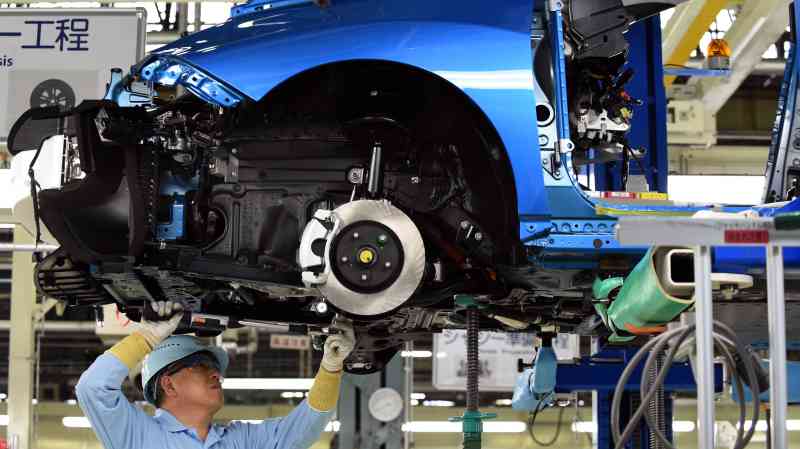Toyota is set to slash its targets for electric car production by a third, according to reports in Tokyo.
The world’s largest carmaker has been slow to enter the full-electric car segment as it has concentrated on petrol-electric hybrid technology. It had said previously that it expected to produce 1.5 million battery electric cars in 2026, about 15 per cent of its annual production levels.
However, according to Nikkei, the Japanese media provider, Toyota has decided to lower that target to a million.
After the report was published, Toyota said that its aim was still to make 1.5 million electric cars in 2026 and that it would continue to aim to make 3.5 million a year by 2030, but it added that the numbers were not “targets” but “benchmarks”.
The question marks over how many electric cars will be made by Toyota, the world leader both by volume and by innovation, come during a febrile few weeks for the automotive industry.
Employees at Volkswagen, Europe’s largest carmaker, are being warned to accept potentially thousands of job losses because of a general decline in car sales, not helped by a much slower demand than expected for zero emission vehicles. Germany, Volkswagen’s home market, has been rocked in recent months by sharp falls in electric car sales after the federal government ended the regime of incentives and subsidies for the vehicles.
This week Volvo said it had scrapped its plan to become an electric-only carmaker by 2030. Though only a bit-part player on the world stage, the Chinese-owned Swedish carmaker had made a big play since the last decade of being a leader in the electric vehicle revolution. In Britain, Bentley, the luxury carmaker owned by Volkswagen, has reined back its earlier commitment to be all-electric by 2030.
Britain is Europe’s second largest market for electric cars, but latest sales figures show that they account for only 17 per cent of new registrations. The industry is forecasting that the proportion might rise to 18.5 per cent by the year’s end with the arrival of new electric models in showrooms, notably from Chinese brands.
Nevertheless, that is about 70,000 units short of the 22 per cent market shares envisaged by the last government when it launched the zero emission vehicle mandate to promote electric cars. That mandate has a target of 28 per cent of the market in 2025, a figure that few in the industry think will be achieved.
